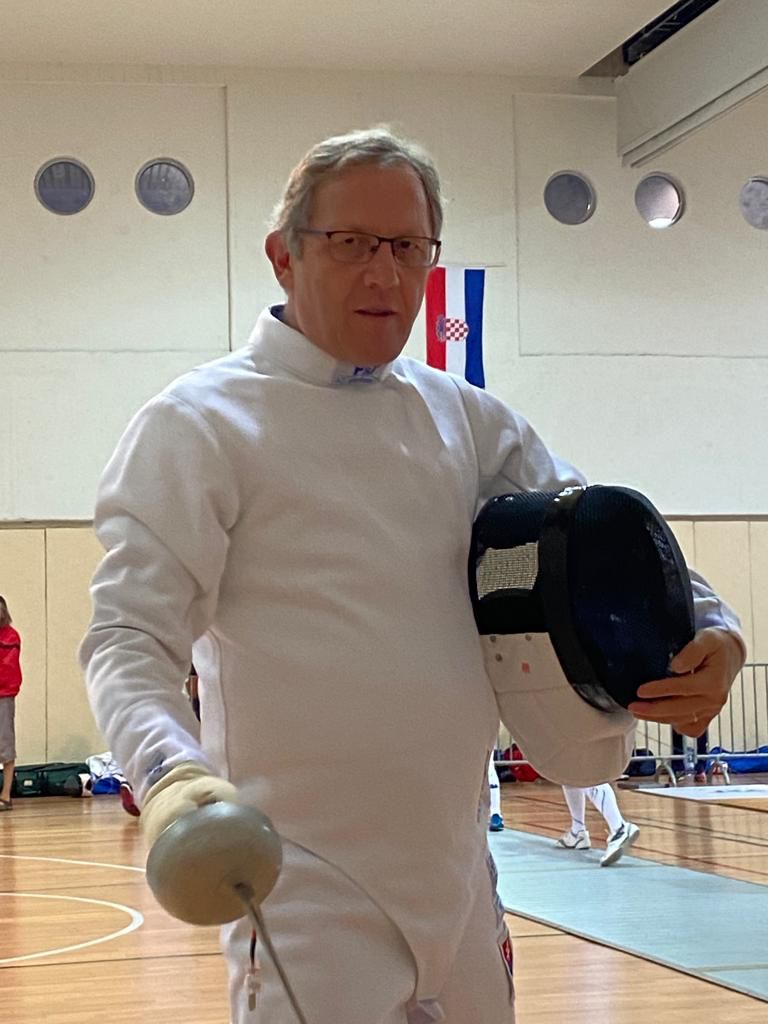Professor participates in fencing championship

Professor Pavol Bauer in Zadar. (Photo: private collection)
In everyday life, Professor Pavol Bauer heads the energy storage and conversion group at the Faculty of Electrical Engineering, Mathematics and Computer Science. But last week, Bauer spent in a sports hall in the city of Zadar, Croatia, on the Adriatic Sea. There he participated in the World Fencing Championships for veterans.
That went quite well at first, but he lost his last match to his Swedish opponent, which meant he finished in 82nd place out of 89 participants. Meanwhile, he is back in Delft and continues to work on the ‘charging station of the future’ for electric transport.
Do you have a question or comment about this article?
j.w.wassink@tudelft.nl

Comments are closed.